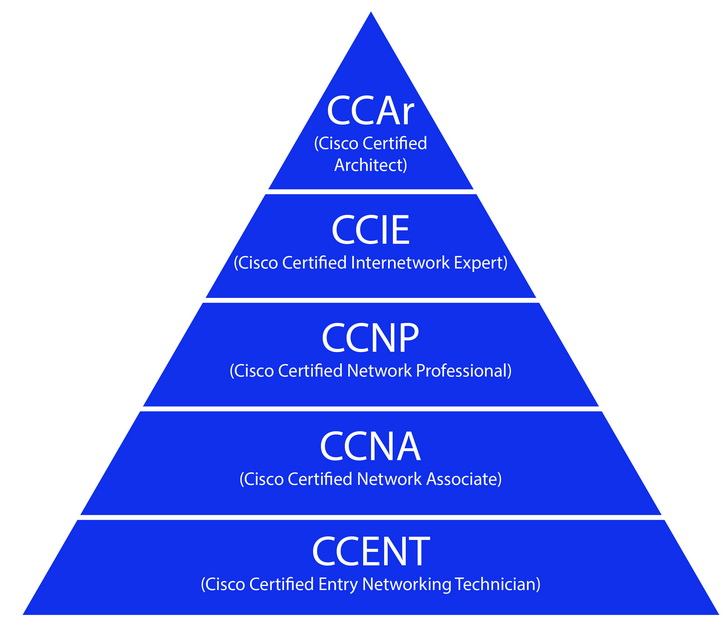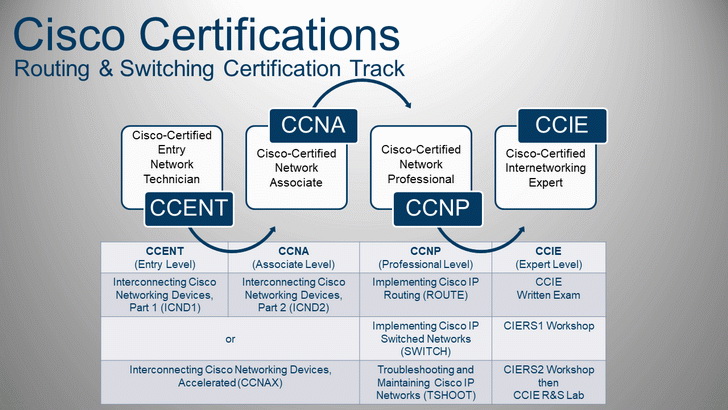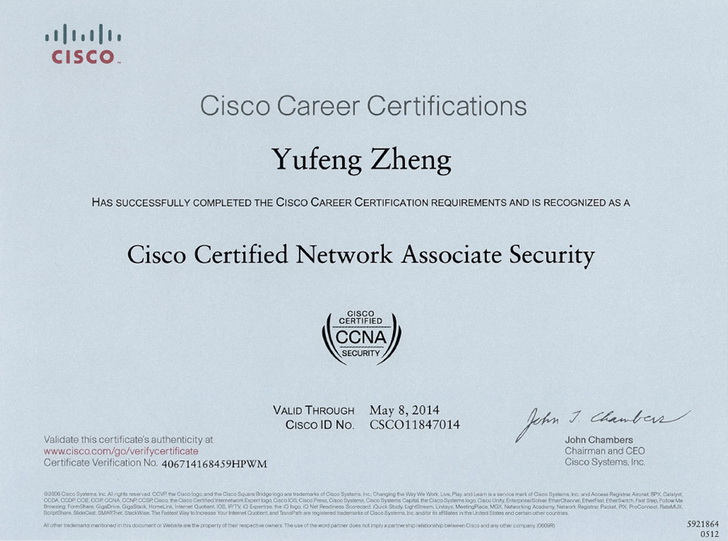In the realm of cybersecurity, where threats lurk around every digital corner, a beacon of expertise is needed to navigate the treacherous waters of the internet. Cisco’s CCNA Security Certification stands as a formidable shield against cyberattacks, and in this comprehensive guide, we will explore its intricacies, significance, and how to attain this coveted certification.
Deciphering CCNA Security Certification
For the uninitiated, CCNA Security, or Cisco Certified Network Associate Security, is the gold standard in network security certification. It signifies a profound understanding of network security principles and is a testament to one’s ability to safeguard digital infrastructure against modern threats.

Cisco Certification Levels
The Imperative of CCNA Security Certification
In an age where data breaches and cybercrimes have become alarmingly commonplace, the demand for skilled cybersecurity professionals is soaring. Organizations are on the lookout for individuals who can shield their digital fortresses, and CCNA Security Certification is the key to unlocking numerous career opportunities, including roles as network security specialists, security administrators, and cybersecurity analysts.
The Riches of CCNA Security Certification
- Career Ascension: CCNA Security Certification is a springboard to higher-paying positions within the cybersecurity domain, promising a substantial boost in your earning potential.
- Validation of Expertise: It attests to your competence in configuring and managing network security appliances, such as firewalls, VPNs, and intrusion prevention systems.
- Global Recognition: Cisco’s certifications are esteemed worldwide, adding weight to your resume and making you a sought-after professional.
- Job Security: With the perpetual growth of cyber threats, certified individuals enjoy job stability and can adapt to evolving security landscapes.

Embarking on the Journey to CCNA Security Certification
Step 1: Prerequisites
Before diving into CCNA Security, it is advisable to have a foundational knowledge of networking concepts. Possessing the CCNA Routing and Switching certification or its equivalent expertise is recommended.
Step 2: Training
Enroll in a reputable CCNA Security training program, which covers the extensive array of topics required for the certification exam. Cisco offers official training, but numerous online courses and study materials are also available.
Step 3: Conquering the Exam
Prepare meticulously for the CCNA Security exam (coded 210-260 IINS), an assessment of your comprehension of network security fundamentals. The exam encompasses areas such as network threats, secure access, VPNs, and firewall technologies.
Step 4: Hands-On Practice
To fortify your knowledge, establish a laboratory environment for hands-on experience. Configuring security devices and troubleshooting security issues will be your daily tasks.
Step 5: Certification
A successful performance in the CCNA Security exam secures your certification. Cisco will dispatch your certification kit, and you can proudly add CCNA Security to your professional repertoire.

FAQs: Navigating the CCNA Security Certification Landscape
1. What is the validity period of CCNA Security Certification?
CCNA Security Certification remains valid for three years. Renewal options include retaking the CCNA Security exam or pursuing higher-level Cisco certifications.
2. What is the passing score for the CCNA Security exam?
Cisco does not disclose specific passing scores for its exams. However, the accepted range is approximately 85-90%.
3. Is it possible to take the CCNA Security exam online?
Yes, Cisco facilitates online proctored exams, offering the convenience of taking the test from the comfort of your home or workplace.
4. What career roles can CCNA Security Certification lead to?
CCNA Security opens doors to a variety of roles, including network security specialist, security administrator, and cybersecurity analyst.
5. Is CCNA Security Certification recognized internationally?
Absolutely, Cisco certifications enjoy global recognition, making them valuable assets for pursuing international career prospects.
In summary, CCNA Security Certification is the linchpin to a rewarding career in the ever-evolving realm of cybersecurity. It validates your expertise, extends a world of job opportunities, and positions you as a guardian of the digital realm. If you are prepared to take the plunge into the world of IT security, CCNA Security Certification is your gateway to success.
Remember, the cybersecurity arena is in a perpetual state of flux, and certification is your compass to navigate this dynamic landscape. Waste no time; embark on your CCNA Security journey today!